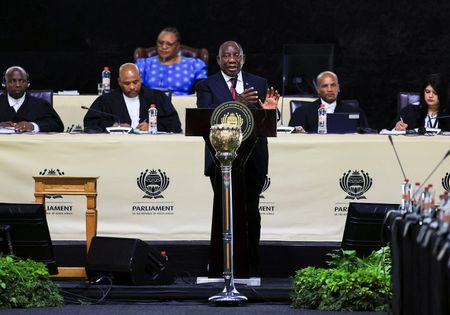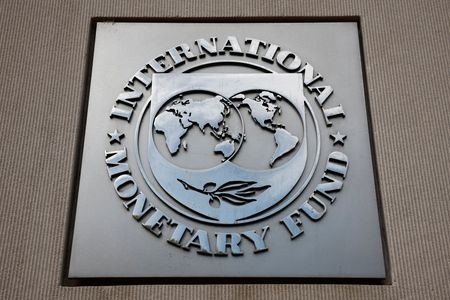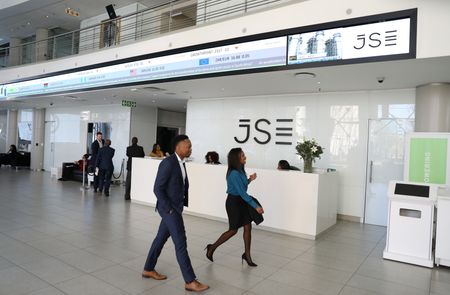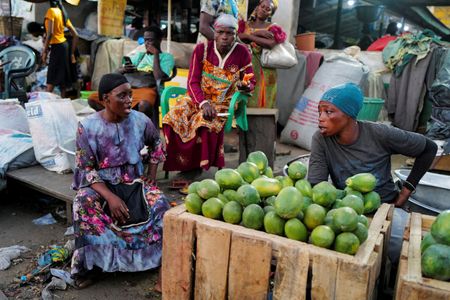By Colleen Goko
JOHANNESBURG (Reuters) -South Africa’s National Treasury has issued a call for “innovative foreign currency financing solutions”, aiming to raise at least $500 million for the 2025/26 fiscal year, following parliament’s resolution of a protracted budget impasse that had threatened fiscal stability.
The Treasury’s announcement on Friday follows the passage of the Appropriation Bill on July 23 by parliament’s lower house, ending months of political deadlock among coalition partners.
The African National Congress – which rules in a coalition government of national unity with the Democratic Alliance and smaller parties – abandoned a proposed VAT increase and President Cyril Ramaphosa dismissed a minister accused of misconduct to secure Democratic Alliance support for departmental budgets.
“This funding initiative aims to diversify the sovereign’s hard currency funding toolkit beyond a traditional Eurobond, reduce execution risk and minimise the all-in cost of funds,” the Treasury said, emphasizing its focus on liability management tailored to evolving market conditions.
The Treasury is seeking proposals from a specific group of eligible counterparties: primary dealers in South African government securities, internationally active arranging banks, multilateral institutions, institutional investors, and other regulated financial entities with capacity to fund at scale.
South Africa’s move highlights the broader challenges faced by African countries in accessing affordable debt amid global economic uncertainty. Angola said this week it was pausing international borrowing plans, while the likes of Ghana, which has just come out of default, are looking to domestic investors for money.
While Morgan Stanley data shows $154.2 billion in year-to-date sovereign issuance in emerging markets, much of that has been concentrated in the Middle East and Eastern Europe.
The Treasury plans to evaluate proposals for bilateral term loans, private placements of floating rate notes, repurchase agreements, cross-currency swaps, and structured notes. ESG-linked instruments are particularly encouraged, reflecting alignment with the $61.9 billion in ESG-labeled emerging market bond issuance so far this year.
Proposals will be assessed based on cost of funds, execution speed, resilience to currency volatility, and compatibility with South Africa’s debt maturity profile and service peaks. Submissions are due by August 6, with a decision expected by August 29.
The Treasury reserved the right to accept or reject proposals, describing the initiative as exploratory rather than a committed borrowing program. May’s budget projections revised the consolidated deficit to 4.8% of GDP, up from March’s forecast of 4.6%, with gross debt expected to stabilize at 77.4% of GDP.
(Reporting by Colleen Goko; Editing by David Holmes)










